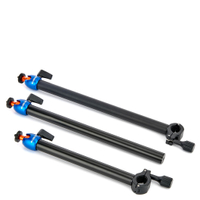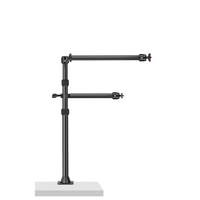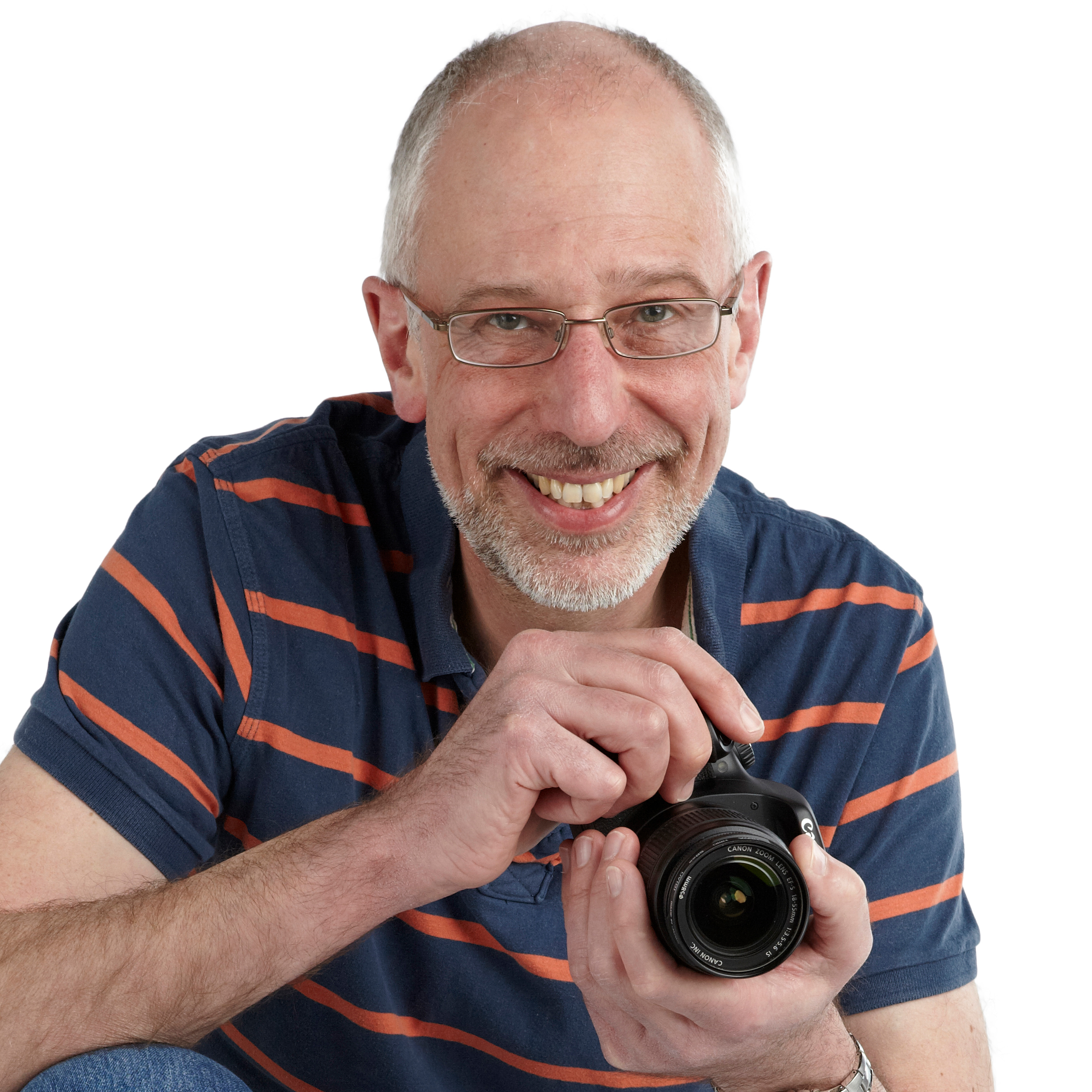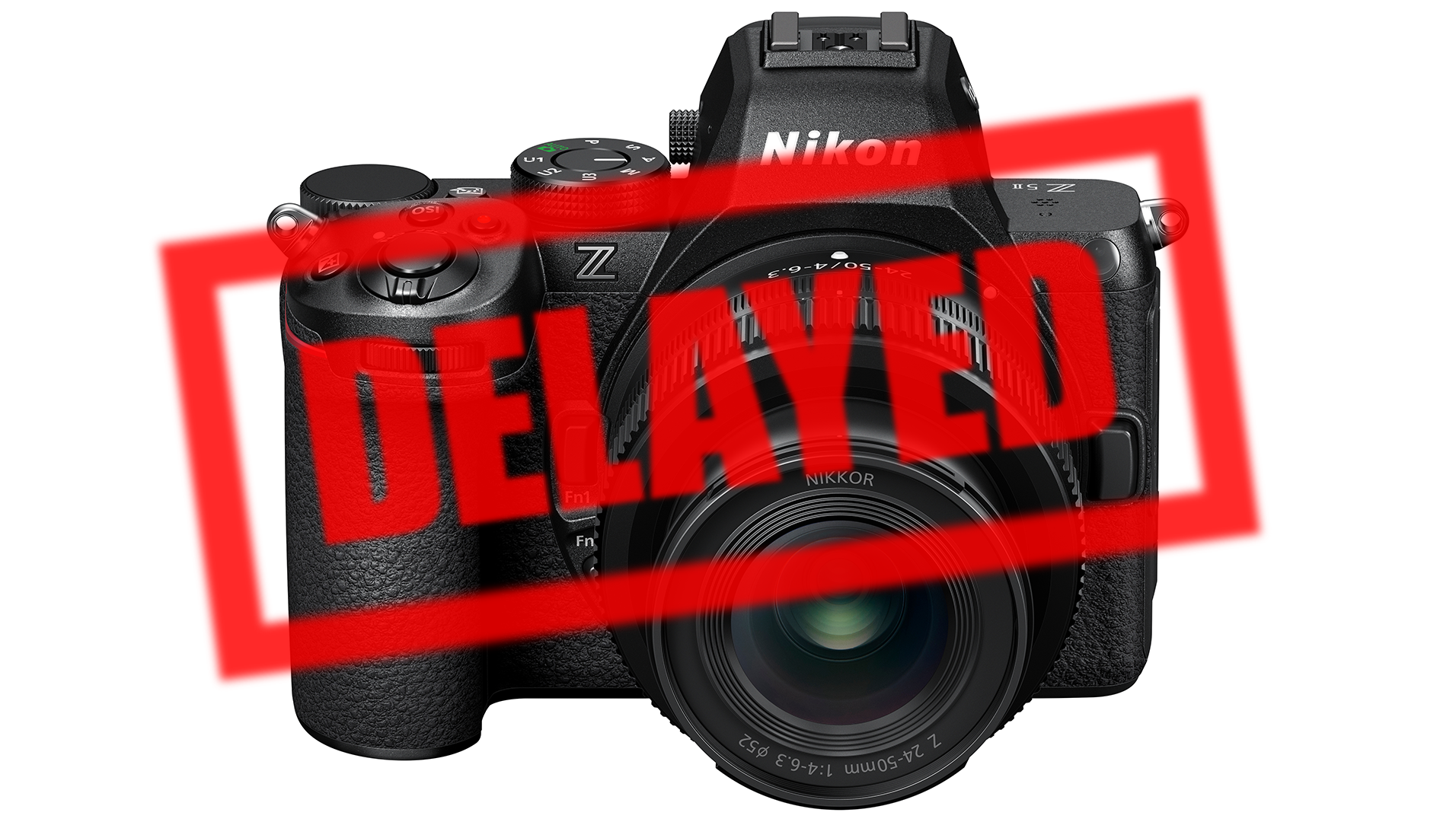Digital Camera World Verdict
I like the way that the SmallRig Camera Desk Mount is so quick and easy to use. Mind you, it should be. Compared with some competing desk and tabletop mounting systems, it’s a very bare-bones affair with no auxiliary arms for attaching other accessories. What you see is what you get, but it’s compact, simple, sturdy and reasonably priced.
Pros
- +
Strong 3kg / 6.6lb payload rating
- +
Includes a ball head and 5/8” mount
- +
Solid performance
Cons
- -
No phone bracket included
- -
No auxiliary arms for accessories
Why you can trust Digital Camera World
I’ve been impressed with SmallRig accessories in the past. I’ve got the company’s add-on hand grip which transforms the handling of my Nikon Z fc and, while we’re at it, when Nikon launched the full-frame Z f, they bundled a SmallRig hand grip as a free extra with the camera. The SmallRig Camera Desk Mount sets out to achieve a specific purpose. When you don’t have the space or inclination to use a tripod, it’s a support that clamps directly to a tabletop or desk, with an extending pole at the top of which is a mini ball head. It’s therefore ideal for content creators sitting at a desk or table and presenting to camera. Fairly basic but heavy-duty, the SmallRig aims to be one of the best camera desk mounts but you might also like to consider one of the best tabletop tripods or even one of the best budget tripods.
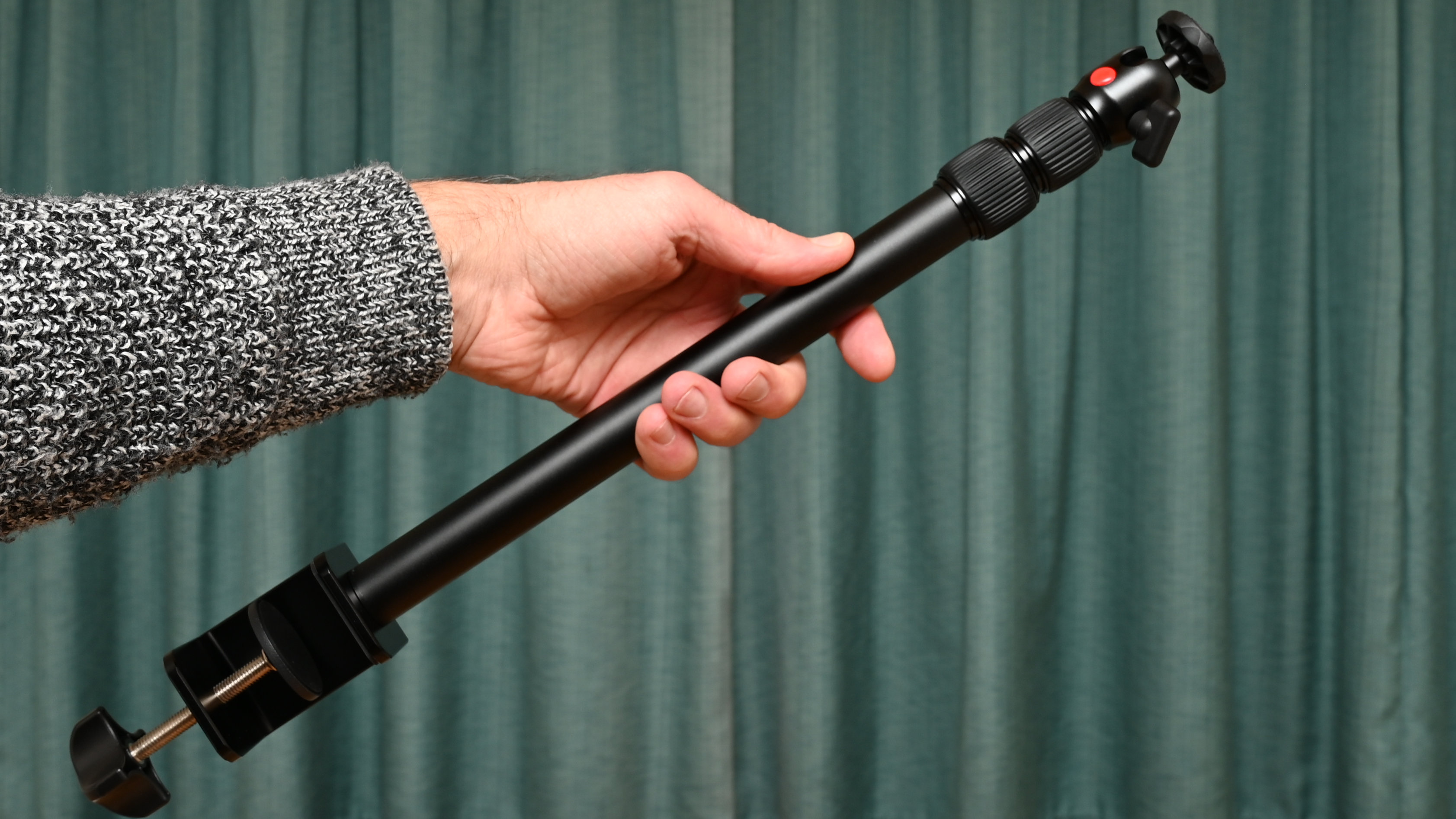
SmallRig Camera Desk Mount: Specifications
| Center pole height | 39-91cm / 15.4-35.8" |
| Center pole tube diameters | 25 / 22 / 19mm |
| Center pole weight | 440g / 15.5oz |
| Aux Arm 1 length | N/A |
| Arm diameters | N/A |
| Aux Arm 1 weight | N/A |
| Max tabletop thickness | 48mm / 1.9" |
| Max load | 3kg / 6.6lb |
| Ball head mount | 1/4"-20 + adapter |
SmallRig Camera Desk Mount: Price
The SmallRig Camera Desk Mount doesn’t come cheap. It’s available for around $30/£35 and, while that’s not big bucks, it’s pretty pricey for a desk mount that doesn’t include any extras, like auxiliary arms for attaching other accessories or adding versatility in positioning, and a phone bracket isn’t included either. At least it comes with a carrying bag, which is unusual for a desk mount. Even so, the 3 Legged Thing CDMS-2A is a much more versatile camera desk mount that comes complete with two auxiliary arms, each with their own mini ball heads, and costs $60/£47.
SmallRig Camera Desk Mount: Design & Handling
Let’s start at the bottom and work our way up. It won’t take long. The clamp for attaching the SmallRig to a desk or tabletop has a maximum opening height of 48mm / 1.9", which should prove sufficient for all but the chunkiest of furniture. In keeping with the compact design of the mount, the knob for tightening the clamp is fairly small and doesn’t protrude outside of the dimensions of the mounting bracket. The active surfaces top and bottom of the clamp are rubber-coated to avoid damage to furniture, which is always welcome.
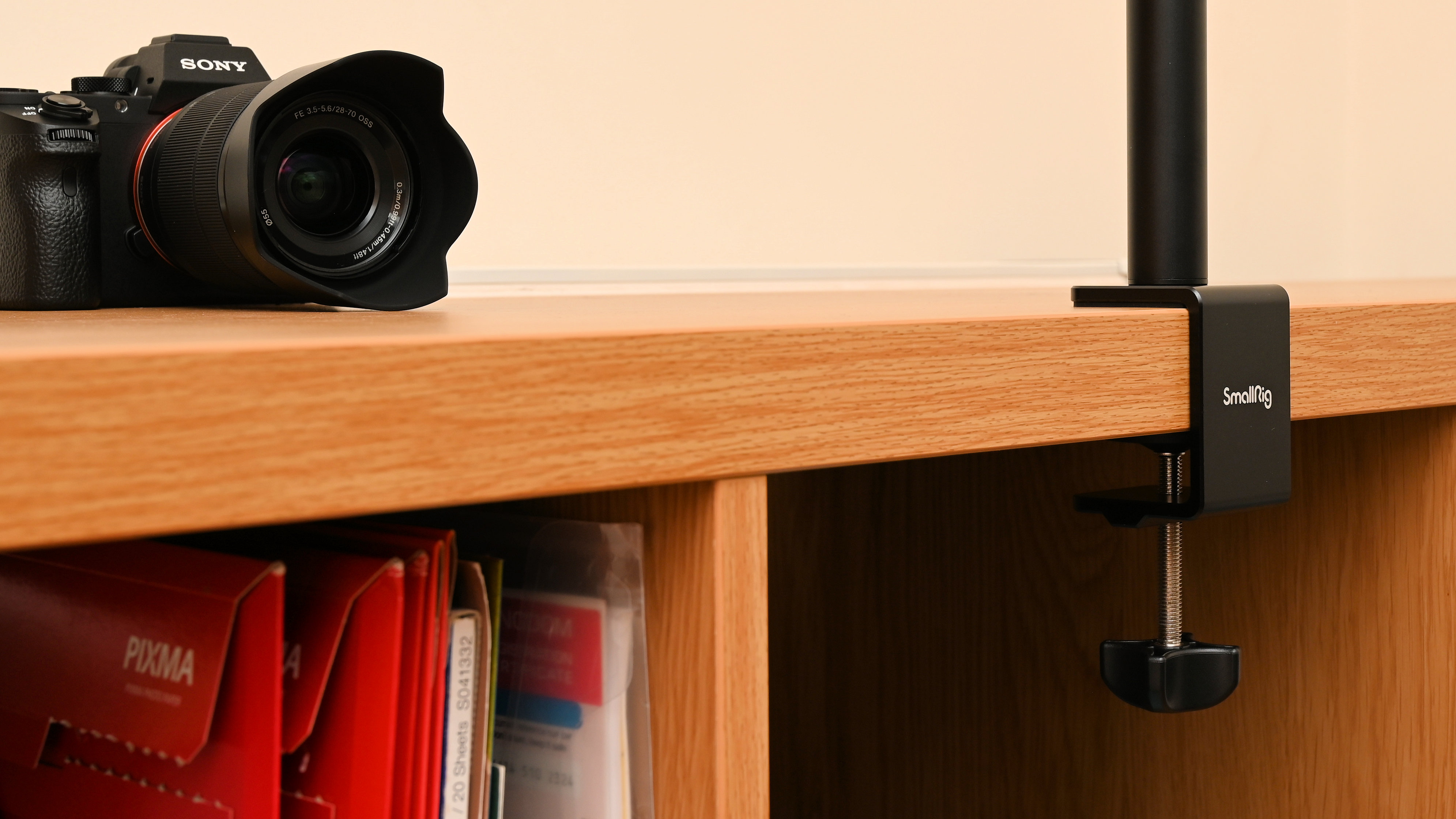
Fixed to the desk mounting clamp is a 3-section telescopic pole. The diameters of the sections are pretty average for this type of support, measuring 25 / 22 / 19mm from bottom to top. The telescoping action is enabled by twist-action clamps which operate smoothly and efficiently, taking the support from a minimum to maximum height of 39-91cm / 15.4-35.8". Again, that’s par for the course.
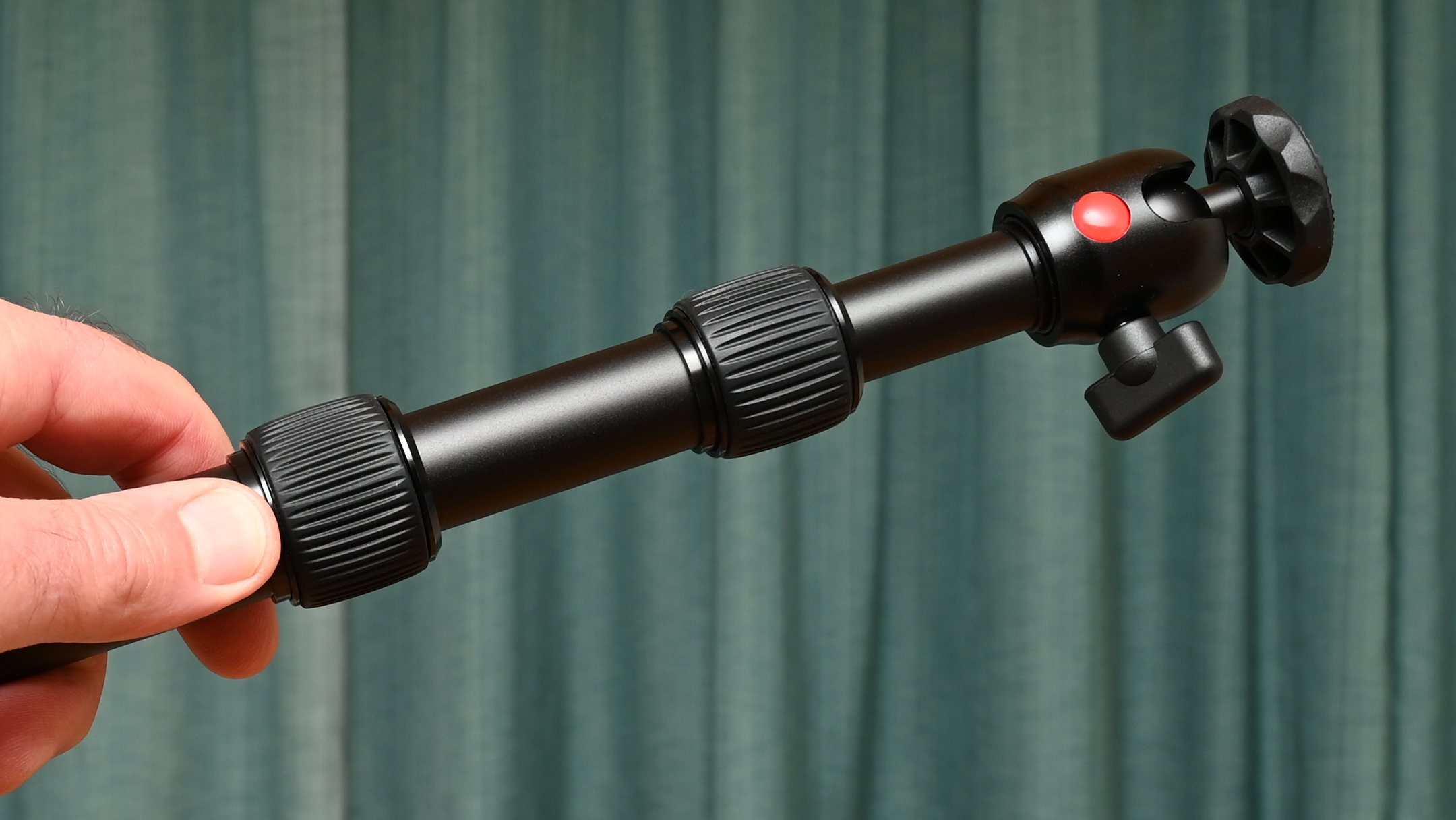
Without any auxiliary arms or other additional paraphernalia, the SmallRig is quite a lightweight bit of kit, tipping the scales at 440g / 15.5oz. Let’s just say it’s conveniently compact and lightweight to carry around. And with that in mind, it’s somewhat unusual for a desk mounting support in being supplied complete with a carrying bag. Another unusual included extra is a 5/8” spigot for mounting a studio flash head or LED panel that has a standard lighting socket. This screws onto the ball head, which I’ll come to next.
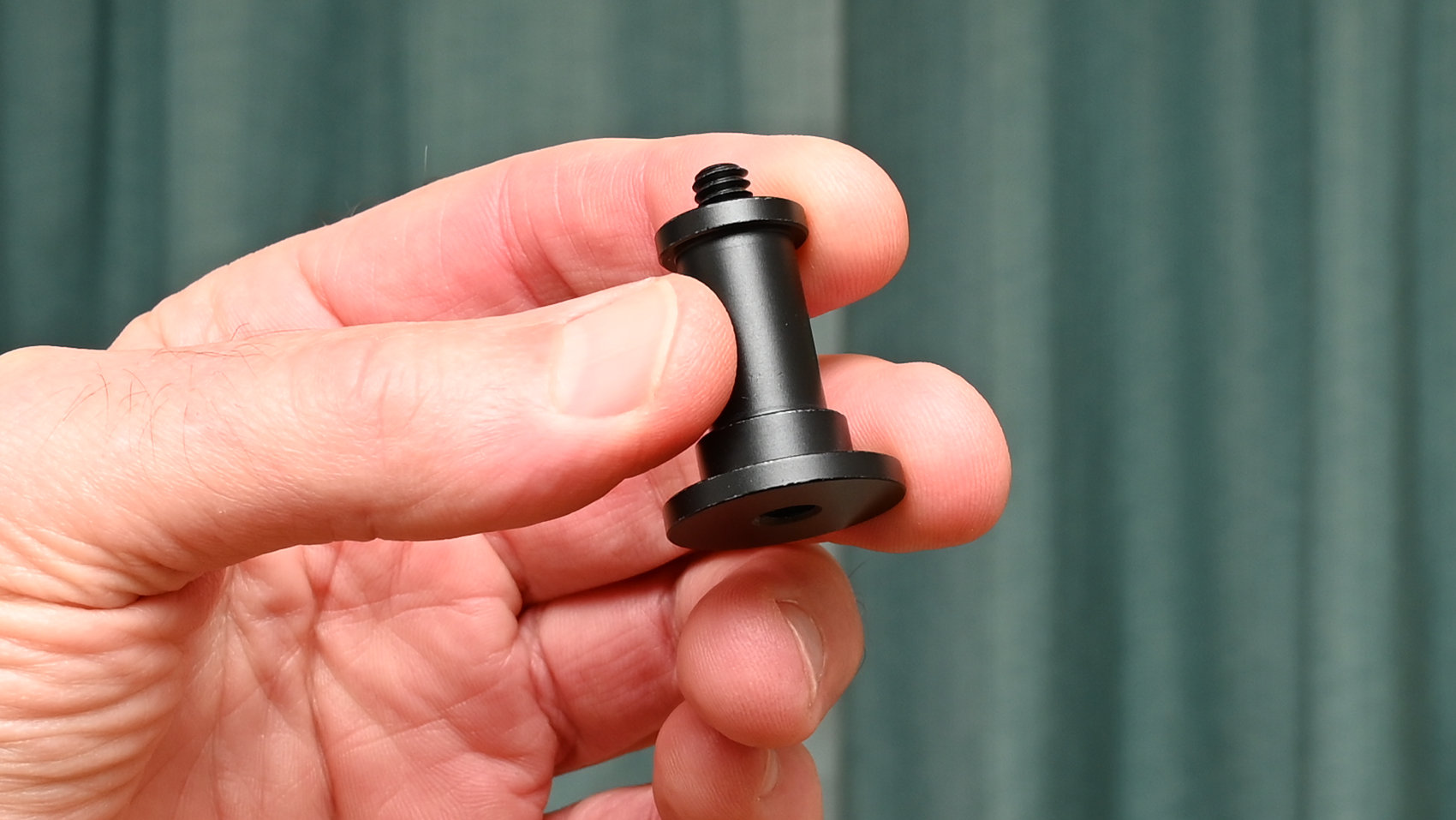
The mini ball head has the same 3kg / 6.6lb load rating as the support on which it sits. There’s no quick-release plate or other exotica, just a cutout on one side of the outer socket, to enable portrait-orientation or extreme upward/downward shooting. Speaking of which, the lack of auxiliary arms means that you can’t really use the support for positioning the camera over a subject placed flat on a table, and shoot it from directly above. That’s something I sometimes like to do for taking photos of old photo prints.
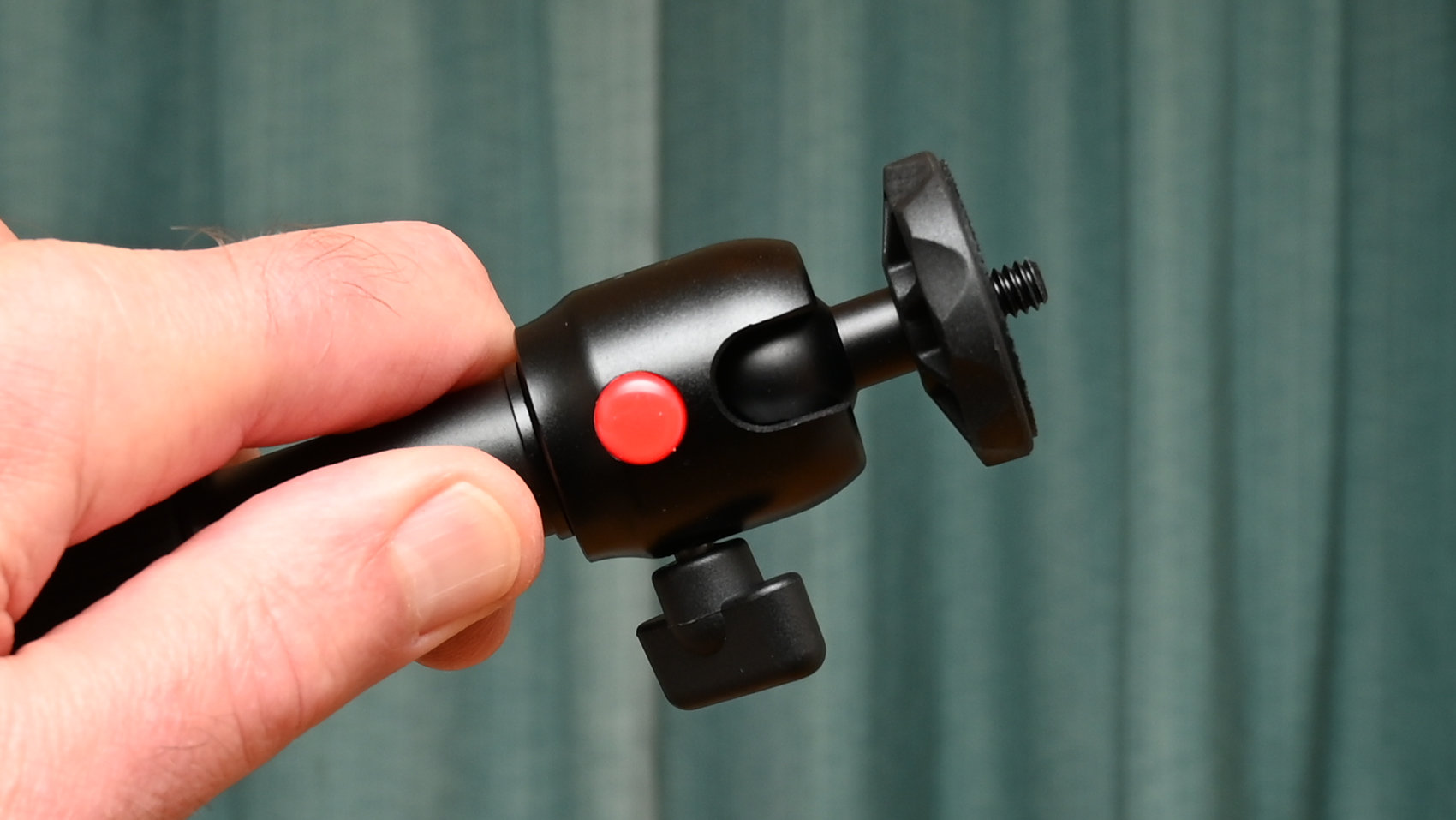
An obvious use of the support is for speaking to camera, whether you’re creating content for a media channel or videoconferencing. With that in mind, I think it would have been nice if a phone bracket had been included, as with some other desktop mount systems, but that’s not the case. It’s not really a deal-breaker though, as they’re quite cheap to buy separately.
SmallRig Camera Desk Mount: Performance
The SmallRig doesn’t really have to accomplish much in terms of performance. It just needs to clamp firmly to a desk or tabletop, with an extending pole that doesn’t wobble. I tested it with a Sony A7 II and kit zoom lens, which weight about 920g / 2lb between them. Attaching the clamp to my table was quick, easy and effective. The same goes for adjusting the extending pole and the mini ball head up top.
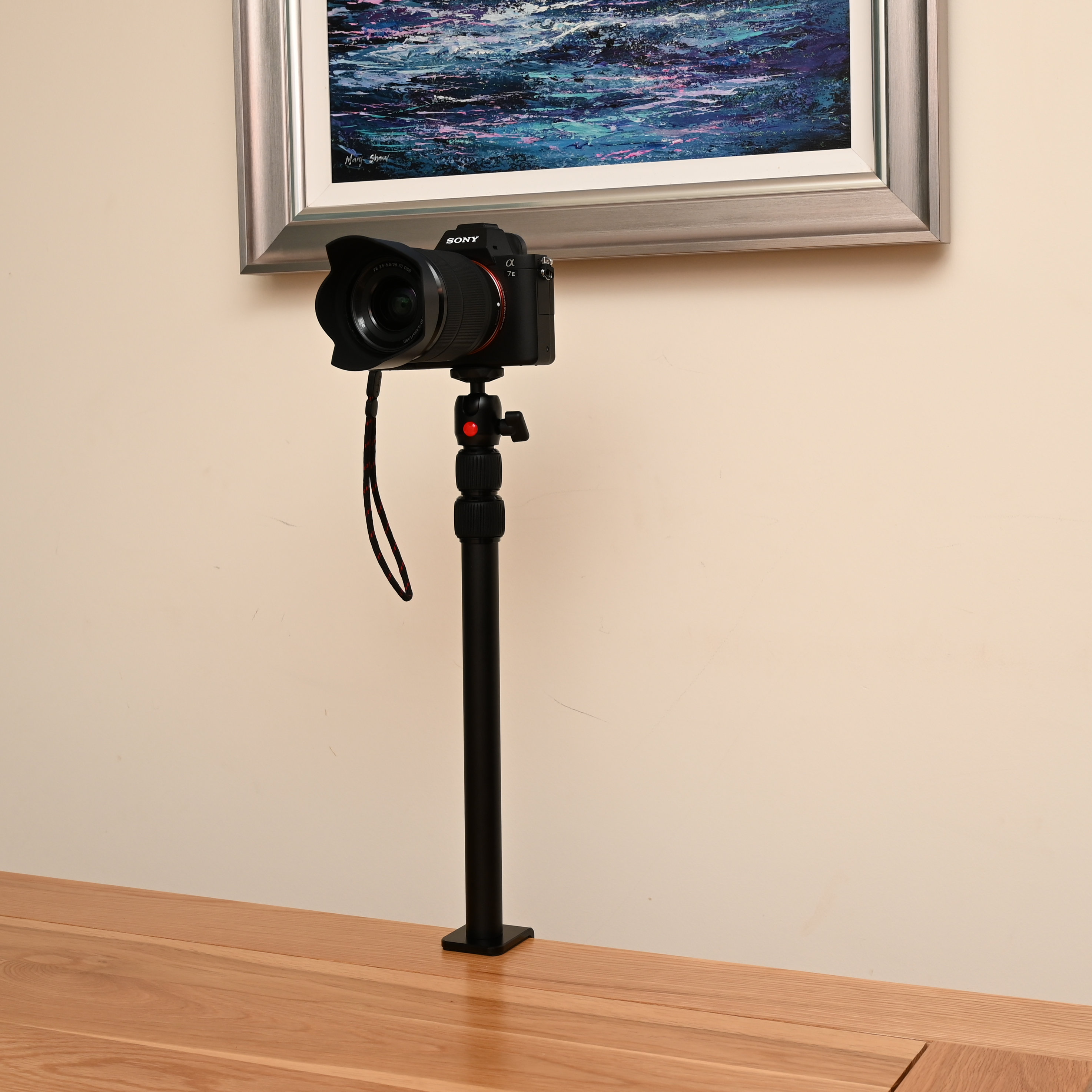
Although simple, the SmallRig works well with good sturdiness and is simple to use. Performance is therefore good as far as it goes. However, the lack of auxiliary arms for adding the likes of an LED panel or other accessories, in addition to a camera, ultimately limit the usefulness and overall performance.
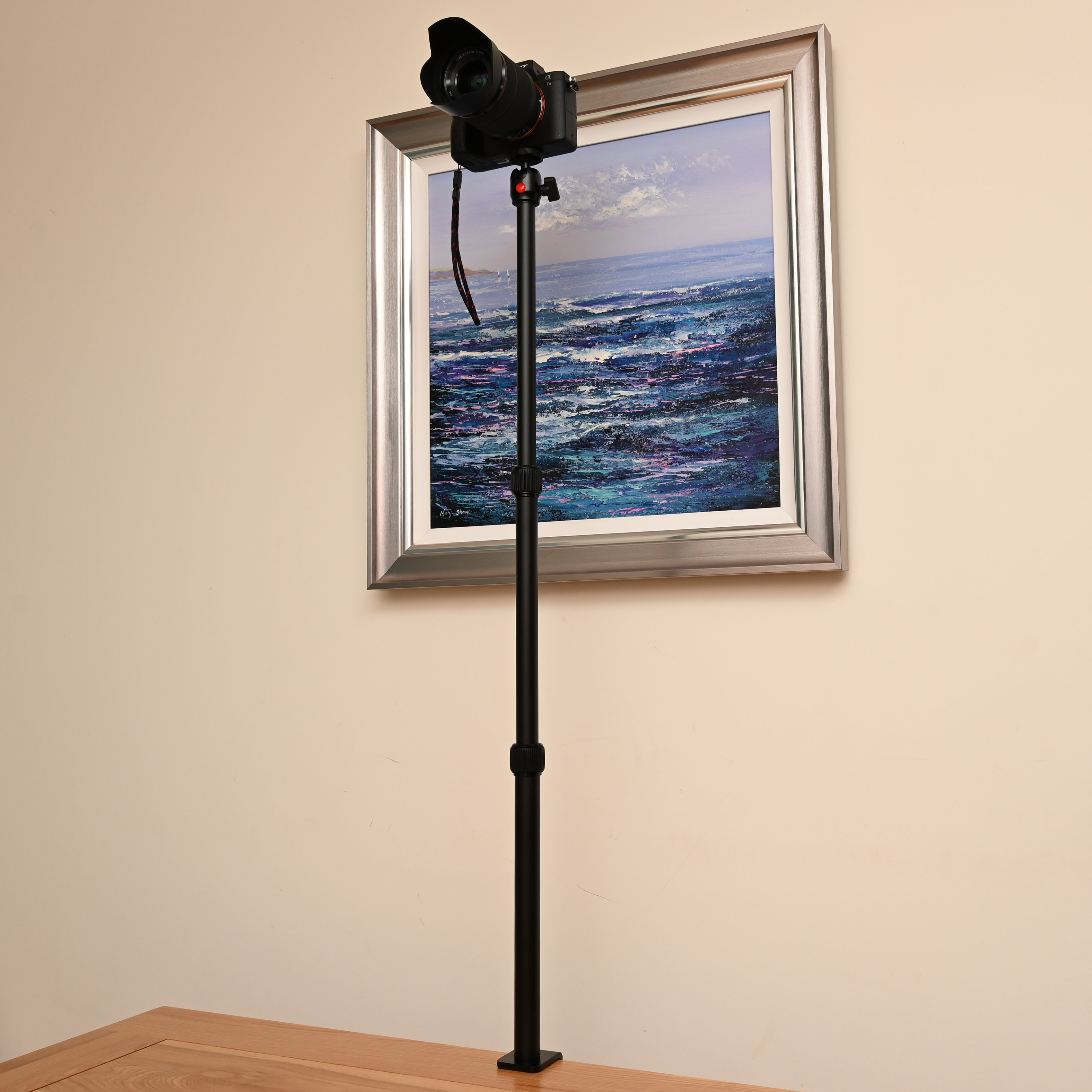
SmallRig Camera Desk Mount: Verdict
I think the SmallRig Camera Desk Mount works well and is very useful, as far as it goes. Many of us will only need a vertical pole that can attach to a table, for mounting a camera. If that’s you, you’ll find the support works fine and is quick and easy to use, as well as being compact and lightweight to carry around, or to find a space for when you want to stash it away. However, if you want a support to which you can add an LED lamp or other accessory in addition to a camera, you’ll find it a bit lacking.
| Features | It has all the features you need for a desk-mounting vertical pole, but nothing more. | ★★★★☆ |
| Design | The overall design is good but it lacks extra auxiliary arms that would add versatility. | ★★★★☆ |
| Performance | It performs well as a vertical pole but is a bit of a one-trick pony. | ★★★★☆ |
| Value | Spend a little more and you can get a desk mount that’s much more versatile. | ★★★★☆ |
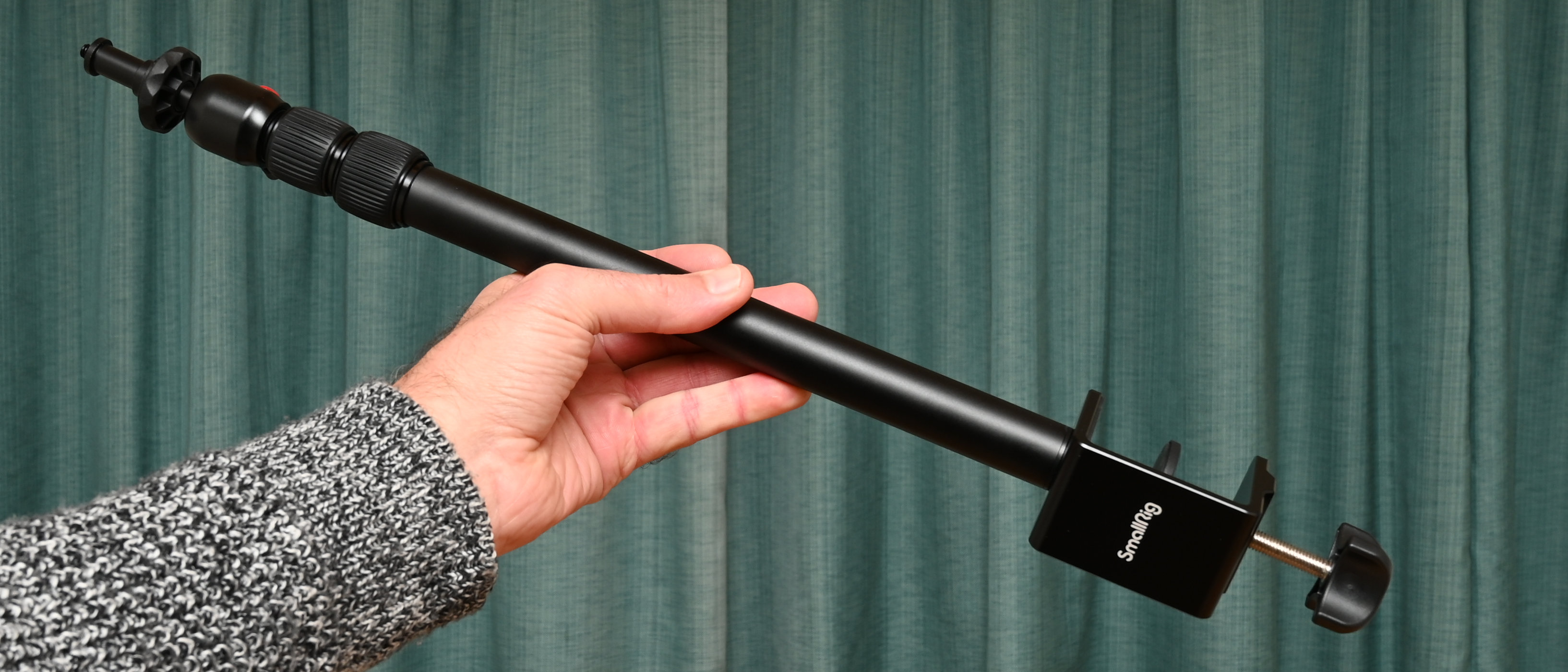
Should you buy the SmallRig Camera Desk Mount?
✅ Buy this...
- You just want a vertical pole that attaches to a desk or table, and you don’t need auxiliary arms.
- You like to keep things simple with good quality kit that serves a basic purpose and is quick and easy to use.
🚫 Don't buy this...
- You want to support an LED panel or other accessory as well as a camera. This kit has no auxiliary arms.
- You’d rather buy a kit that comes complete with a phone mounting bracket, instead of having to buy one separately.
Alternatives
Something of a Rolls Royce product, the 3 Legged Thing Computer Desk Mount system is lavishly engineered, luxuriously finished and works wonderfully well. Three kits are available, comprising just the center pole with table clamp and ball head for $35/£27, the CDMS-1A kit, which adds a single auxiliary arm for $50/£39 and the range-topping CDMS-2A kit with center pole and dual arms at $60/£47.
From the popular budget brand, the Neewer Camera Desk Mount with two auxiliary arms enables you to mount a camera plus an accessory like an LED panel, and is priced at around $40/£44. It has a load rating of 4kg / 8.8lb for the center pole and 0.9kg / 1lb for the auxiliary arms.
Matthew Richards is a photographer and journalist who has spent years using and reviewing all manner of photo gear. He is Digital Camera World's principal lens reviewer – and has tested more primes and zooms than most people have had hot dinners!
His expertise with equipment doesn’t end there, though. He is also an encyclopedia when it comes to all manner of cameras, camera holsters and bags, flashguns, tripods and heads, printers, papers and inks, and just about anything imaging-related.
In an earlier life he was a broadcast engineer at the BBC, as well as a former editor of PC Guide.
